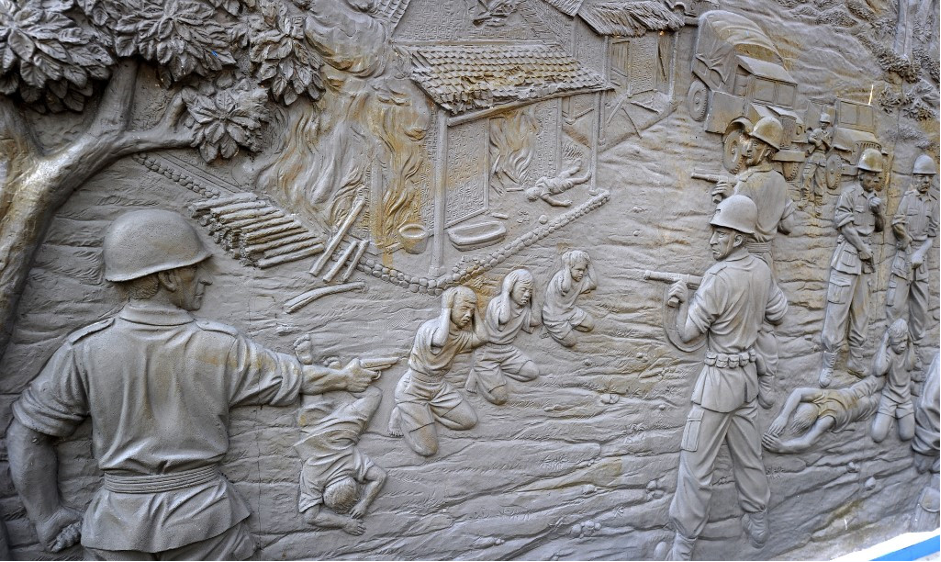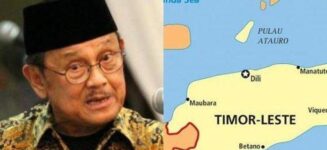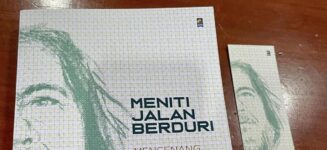The article has been published in The Jakarta Post 23 February 2022
https://www.thejakartapost.com/paper/2022/02/22/of-war-crimes-and-apologies-lessons-from-the-dutch-war-in-indonesia.html
Should one be surprised, appreciate or simply take for granted when a foreign power that had colonized your country for centuries acknowledged its war crimes and offered a sincere apology? In the case of the Dutch, there are good reasons not to be shocked, but to qualify the offer and welcome the lessons of history.
The Dutch government last week expressed a “deep apology” to all victims of Indonesia’s struggle for independence (1945-1949), both the Indonesian people and Dutch war veterans — given that the latter had been forced to fulfill their duties assigned by the then-ruling politicians — and others at home.
Prime Minister Mark Rutte’s statement followed the result of a government-sponsored academic investigation into the conduct of the Dutch army and the fate of both the local victims and others who were involved. The report, written by a number of historians, consists of no less than 14 books that will be translated into English and Indonesian.
As early as 1969, Joop Hueting, a former soldier, came out as a whistleblower, confessing his own crime of the indiscriminate killing of villagers and speaking of similar acts committed by his fellow soldiers. The decades that followed saw comments, articles and books from various sources and sections of society that pointed to similar acts. War veterans slammed Hueting, some reportedly threatened him with terror.
Hueting’s revelation led to a government investigation that resulted in De Excessennota (1969), which suggests that all that happened was simply excesses — nothing structural nor systemic. The true scale of the alleged crimes was thus kept secret and covered up. As one recent book proves, even if substantiated, any war crime during 1945-1949 had to be excluded from the judicial process.
It was the government-sponsored great works of Loe de Jong on the Netherlands during World War II, published in the mid-1980s, that first suggested the term oorlogsmisdaad (war crime) for the Dutch army’s acts in Indonesia. He soon encountered fierce resistance from war veterans Ied by Karl Heshuhius, a former cavalry commander in Bandung, West Java. I remember meeting De Jong in parliament and interviewing Heshuhius, who falsely argued that De Jong was wrong because, being a socialist, he had acted against the Soeharto regime.
Being accused of being a war criminal was a great insult. Given the societal pressures, alas, De Jong had to succumb and abandoned the term. It was not until the Swiss-Dutch historian Remy Limpach’s book The burning Kampongs of General Spoor (2017) that much of the truth, the scale, sort and structural nature of the crimes were described.
Now that the three institutions’ researchers have revealed not only the true scale of what was known and gathered as war crime cases, the Dutch government can do little else but acknowledge its responsibility and offer an apology. Rather than being condemned, it’s now harvesting great praise – quite wrongly given that many of the crimes had over time been revealed after they were put in the doofpot (cover-up).
Many Dutchmen refused to join the war or deserted to the Indonesian side, like Johannes Poncke Princen and Piet “Pitojo” van Staveren, to mention but two whom I met in the past. Many of them were punished and imprisoned. But as one close observer put it, it was them – hundreds of the so-called dienstweigeraars (those who defied the call to join the army) and the deserters – who, among the Dutchmen, were “the true victors” of the war. Their honor needs to be restored.
More should be done. The authorities may need to compensate those who were victimized; not only war victims in Indonesia, but also war-veterans who acted on their behalf, the Mollucans, who fought on the Dutch side and brought to the Netherlands on the promise to return home to build the South Moluccan Republic, and the Indisch communities who were victimized during the short and specific period called Bersiap (1945-46).
Financial compensation? It was the Netherlands-based Committee of Dutch Honorary Debt (KUKB) that pioneered such a process leading to the Rawagede crime (1947) compensation (2012). That was only possible by acknowledging the victims as onderdaan (Dutch-Indisch citizens) rather than Indonesians. No Indonesian could ever be recognized as such, given that Dutch law does not acknowledge Indonesia’s independence on Aug. 17, 1945.
Even apart from this, some lawyers, notably Liesbeth Zegveld, expect any financial compensation to be complicated, as the government has not qualified the judicial implications of the recently found crimes.
Crimes, what crimes? True, there were war crimes perpetrated by the colonial soldiers, but the investigators curiously prefer to use terms like extreme or structural violence rather than war crimes, dismissing, that is, de Jong’s respectable readiness to apply the term.
It should be remembered that the Dutch waged war in Indonesia following the German occupation of the Netherlands, which greatly humiliated the country and during which tens of thousands of Dutch citizens died in Nazi concentration camps. War crimes were thus remembered as an inherent part of the Holocaust. Although they now describe extreme violence as similar to war crimes, the latter term seems still disturbing to the Dutch psyche.
What, then, are the lessons of the Dutch investigation of the 1945-1949 war and PM Rutte’s apology? War crimes like indiscriminate mass killings and the rampok (theft) of civilian properties are not limited to the Dutch colonial war and the Nazis. Indeed, it reminds us of even more recent and fresh crimes perpetrated by the Indonesian Army at home and its colonial war in Timor Leste.
While some, like the Federatie Indische Nederlanders (FIN), of the Indisch community and the KUKB prefer to make a big noise on the Bersiap and the fate of the victimized colonial onderdanen, they both choose to be completely silent on Indonesia’s mass killings of the 1960s, Timor Leste’s occupation and the secretive counter-insurgency war in Papua.
Remember, in the first place, those responsible are the politicians and commanders – not the soldiers on the spot, now mostly deceased war veterans. It should be clear that it was not merely the prime ministers and generals – Louis Beel, Willem Drees, Simon Spoor, etc. – but those whose policies could have long-term impacts on the next generations. They were the first responsible for those actions on the ground.
Secondly, as war crimes are part of serious crimes, called crimes against humanity, it follows that Dutch colonial war crimes in Indonesia should specifically remind us of the Matebian war in Timor Leste that killed some 180,000 civilians and the mass killings of 1965-1966.
An International People Tribunal in The Hague in December 2015 concluded that the 1960s killings constituted genocide. When some generals later countered the ruling in a July 2016 symposium in Jakarta, I remember Gen. (ret) Luhut Binsar Panjaitan said he vaguely remembered, “It was only about 50,000 people wasn’t it?”, referring to the number of people who were killed. The truth is, more than half a million were killed.
There is a great loss when things are easily “forgotten”; justice, too, gets lost. As independent nation-states don’t necessarily transform people to a greater narrative of justice for their subjects, they may need to decolonial the state for the sake of their subjects.
Hence, forgive, not forget, but investigate.
*** The author is a journalist formerly with Radio Netherlands Worldwide.




One Reply to “Of war crimes and apologies: Lessons from the Dutch war in Indonesia”
Comments are closed.